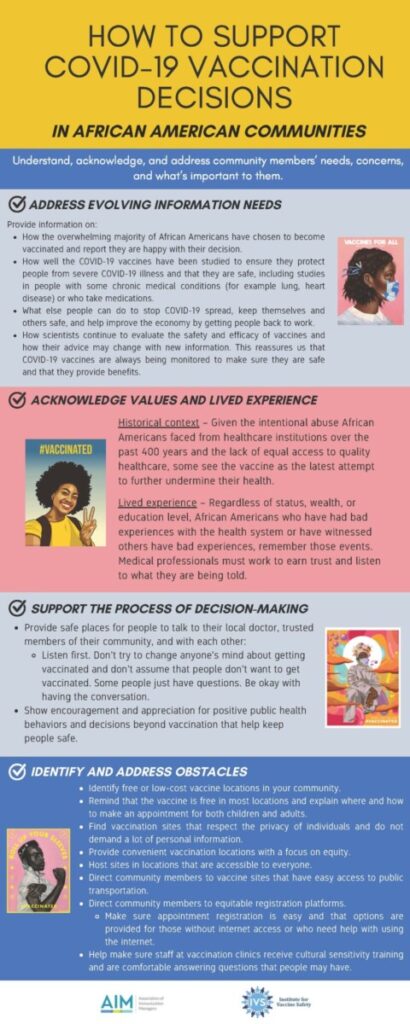With Tuesday’s lecture focused on effective communication strategies and both great and poor communication examples shows, I have been thinking of message tailoring. During the COVID-19 pandemic we saw more attention being paid to this. Diverse and marginalized groups have historically faced medical racism, or worse, medical violence. In the United States, there has been the forced sterilization of Indigenous women, the Tuskegee syphilis study, and experimental treatment on incarcerated individuals. How do you gain trust during a public health crisis when these populations have experienced trauma at the hands of experts?
Within the African American community, there exists a rightful hesitation with regards to the COVID vaccine. With time and attention brought to more tailored approaches of messaging, this has improved. However, as each new booster rolls out, oftentimes concern remains. When thinking about both acknowledging the mistrust and providing education, it’s a careful balance. After doing some more research, I found this interesting infographic published by the Association of Immunization Managers.

Association of Immunization Managers
While the issue of gaining trust is incredibly complex, what I appreciate about this message are the points of ‘acknowledge values and lived experiences’ and ‘support the process of decisions making’. I believe that a good public health message does include both aspects; saying ‘you have every right to feel this way’ and ‘you have the right to make this health decision’ returns autonomy to the individual. For tailoring communication, both must be included in order to even be heard. To use these techniques first and foremost with marginalized groups can not only get your foot in the door, but also considers the ethical principles of public health.

Ilse: Great post and I love that infographic. I think you are absolutely right that gaining trust is incredibly hard especially if the folks coming into a community to talk about vaccination or masking don’t look or talk like folks within the community. I think it is also important to address the fact that science information is constantly changing and that can be frustrating and confusing for most. Lastly, I think historical context must ALWAYS be considered. I love that this infographic puts that front and center. If I come to a community and don’t mention the wrongs that were done to that community by the medical community, I will never gain their trust.